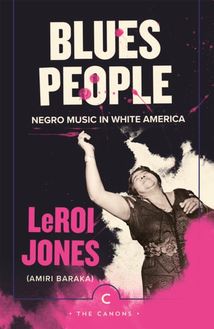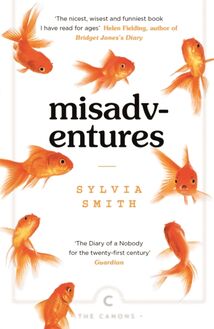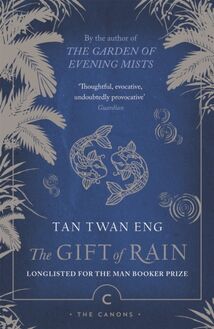Finishing School , livre ebook
54
pages
English
Ebooks
2016
Vous pourrez modifier la taille du texte de cet ouvrage
Obtenez un accès à la bibliothèque pour le consulter en ligne En savoir plus
Découvre YouScribe en t'inscrivant gratuitement
Découvre YouScribe en t'inscrivant gratuitement
54
pages
English
Ebooks
2016
Vous pourrez modifier la taille du texte de cet ouvrage
Obtenez un accès à la bibliothèque pour le consulter en ligne En savoir plus
Publié par
Date de parution
07 avril 2016
Nombre de lectures
3
EAN13
9781782117582
Langue
English
Poids de l'ouvrage
2 Mo
Publié par
Date de parution
07 avril 2016
Nombre de lectures
3
EAN13
9781782117582
Langue
English
Poids de l'ouvrage
2 Mo
ALSO BY MURIEL SPARK
The Comforters (1957)
Robinson (1958)
Memento Mori (1959)
The Ballad of Peckham Rye (1960)
The Bachelors (1960)
The Prime of Miss Jean Brodie (1961)
The Girls of Slender Means (1963)
The Mandelbaum Gate (1965)
The Public Image (1968) – shortlisted for Booker Prize
The Driver’s Seat (1970)
Not to Disturb (1971)
The Hothouse by the East River (1973)
The Abbess of Crewe (1974)
The Takeover (1976)
Territorial Rights (1979)
Loitering with Intent (1981) – shortlisted for Booker Prize
The Only Problem (1984)
A Far Cry From Kensington (1988)
Symposium (1990)
Reality and Dreams (1996)
Aiding and Abetting (2000)
This Canons edition published in 2016 by Canongate Books Ltd, 14 High Street, Edinburgh EH1 1TE
www.canongate.tv
First published in Great Britain in 2004 by Penguin Books Ltd, 80 Strand, London WC2R 0RL
This digital edition first published in 2016 by Canongate Books
Copyright © Muriel Spark, 2004 All rights reserved
British Library Cataloguing-in-Publication Data A catalogue record for this book is available on request from the British Library
ISBN 978 1 78211 758 2
Typeset in Sabon MT by Canongate Books Ltd
Contents
I
II
III
IV
V
VI
VII
VIII
IX
X
XI
XII
XIII
XIV
XV
XVI
XVII
XVIII
XIX
I
‘ YOU BEGIN ,’ he said, ‘by setting your scene. You have to see your scene, either in reality or in imagination. For instance, from here you can see across the lake. But on a day like this you can’t see across the lake, it’s too misty. You can’t see the other side.’ Rowland took off his reading glasses to stare at his creative writing class whose parents’ money was being thus spent: two boys and three girls around sixteen to seventeen years of age, some more, some a little less. ‘So,’ he said, ‘you must just write, when you set your scene, “the other side of the lake was hidden in mist.” Or if you want to exercise imagination, on a day like to-day, you can write, “The other side of the lake was just visible.” But as you are setting the scene, don’t make any emphasis as yet. It’s too soon, for instance, for you to write, “The other side of the lake was hidden in the fucking mist.” That will come later. You are setting your scene. You don’t want to make a point as yet.’
College Sunrise had begun in Brussels, a finishing school for both sexes and mixed nationalities. It was founded by Rowland Mahler, assisted by his wife, Nina Parker.
The school had flourished on ten pupils aged sixteen and upwards, but in spite of this flourishing, mainly by reputation, Rowland had barely been able to square the books at the end of the first year. So he moved the school to Vienna, increased the fees, wrote to the parents that he and Nina were making an exciting experiment: College Sunrise was to be a mobile school which would move somewhere new every year.
They had moved, leaving commendably few debts behind, from Vienna to Lausanne the next year. At present they had nine students at College Sunrise at Ouchy on the lake. Rowland had just taken the very popular class, attended by five of the students, on Creative Writing. Rowland was now twenty-nine, Nina twenty-six. Rowland himself hoped to be a published novelist one day. To conserve his literary strength, as he put it, he left nearly all the office work to Nina who spoke good French and was dealing with the bureaucratic side of the school and with the parents, employing a kind of impressive carelessness. She tended to crush any demands for full explanations on the part of the parents. This attitude, strangely enough, generally made them feel they were getting good money’s worth. And she had always obtained a tentative licence to run the school, which could be stretched to last over the months before they would move on again.
It was early July, but not summery. The sky bulged, pregnant with water. The lake had been invisible under the mist for some days.
Rowland looked out of the wide window of the room where he taught, and saw three of the pupils who had just attended his class, leaving the house, disappearing into the mist. Those three were Chris Wiley, Lionel Haas and Pansy Leghorn (known as Leg).
Chris: Seventeen, a student at College Sunrise at his own request. ‘I can do university later.’ And now? ‘I want to write my novel. It struck me that College Sunrise was ideal for that.’ Rowland remembered that first interview with red-haired Chris with his mother and uncle. There was no father visible. They seemed to be well-off and perfectly persuaded to Chris’s point of view. Rowland took him on. He had always, so far, taken everyone on who applied for entrance to College Sunrise, the result of which policy helped to give the school an experimental and tolerant tone.
But we come back to Chris as he and his two friends were watched from the window by Rowland: of all the pupils Chris caused Rowland the most disquiet. He was writing a novel, yes. Rowland, too, was writing a novel, and he wasn’t going to say how good he thought Chris was. A faint twinge of that jealousy which was to mastermind Rowland’s coming months, growing in intensity small hour by hour, seized Rowland as he looked. What was Chris talking about to the two others? Was he discussing the lesson he had just left? Rowland wanted greatly to enter Chris’s mind. He was ostensibly a close warm friend of Chris – and in a way it was a true friendship – Where did Chris get his talent? He was self-assured. ‘You know, Chris,’ Rowland had said, ‘I don’t think you’re on the right lines. You might scrap it and start again.’
‘When it’s finished,’ said Chris, ‘I could scrap it and start again. Not before I’ve finished the novel, though.’
‘Why?’ said Rowland.
‘I want to see what I write.’
Nina, Rowland’s wife and colleague, sat at a big round table in the general living room of College Sunrise. Round the table were five other girls, Opal, Mary, Lisa, Joan and Pallas.
‘Where’s Tilly?’ said Nina.
‘She’s gone into the town,’ said Opal. Tilly was known and registered at the school as Princess Tilly, but no-one knew where she was Princess of. She seldom turned up for lessons, so Nina did not pursue the matter further. The subject was Etiquette or as Nina put it, ‘Comme il faut.’
‘When you finish at College Sunrise you should be really and truly finished,’ Nina told the girls. ‘Like the finish on a rare piece of furniture. Your jumped-up parents (may God preserve their bank accounts) will want to see something for their money. Listen: when you eat asparagus in England, as everyone knows, you take it in your fingers, but the secret of exquisite manners with regard to asparagus is to eat it held in your left hand. Got it?’
‘My parents are not jumped-up,’ said Pallas. ‘My father, Mr Kapelas, is of an old family of merchants. But my mother is ignorant. She wears expensive clothes, though.’
‘Do they hang well on her?’ said Mary, a blue-frocked, blue-eyed, fair English woman in the making. Her ambition was to open a village shop and sell ceramics and transparent scarves. ‘Everything,’ said Mary, ‘depends on the hang. You see women with lovely clothes, but they don’t hang right on them.’
‘You are so right,’ said Nina, which made Mary adore the teacher even more. Hardly anyone ever told Mary she was so right about anything.
‘Well now,’ said Nina, ‘if you are offered a plover’s egg as a snack, that, too, is taken with the left hand. I read about this in a manners’ book, perhaps it was a joke; anyway, I can see that if you want your right hand to be free to shake someone else’s hand, your left hand should hold the plover’s egg, preferably, I suppose, between the folds of a tiny paper napkin. This is what your parents are paying for you to know, remember.’
‘What’s a plover?’ said Pallas.
‘Oh just a bird, there are lots of different species.’
‘I like seagulls,’ Pallas said.
‘Do they make you homesick?’ said Nina.
‘Yes. All the sea things make me nostalgic for Greece.’
Opal said, ‘We were to have gone to Greece for next spring if the crash hadn’t happened in our family.’ The crash was a bankruptcy which had left Opal’s parents in ruin and distress, with which they were at present trying to cope. Opal’s father would perhaps go to prison, so steeply had the family affairs crashed. Nina and Rowland had immediately offered to keep Opal on at the school without paying any fees for her lessons or her keep, a gesture which was greatly approved by the school at large.
‘At large …’ It was not in any sense a large school. College Sunrise could not in any way compete with the famous schools and finishing establishments recommended by Gabbitas, Thring and Wingate in shiny coloured brochures. Indeed, College Sunrise was almost unknown in the more distinctive educational circles, and in cases where it was known, it was frequently dismissed as being rather shady. The fact that it moved house from time to time, that it seldom offered a tennis court and that its various swimming pools looked greasy, were the subject of gossip when the subject arose, but it was known that there had so far been no sexual scandals and that it was an advanced sort of school, bohemian, artistic, tolerant. What they smoked or sniffed was little different from the drug-taking habits of any other school, whether it be housed in Lausanne or in a street in Wakefield.
With a total of eight paying students Nina and Rowland could just manage to cope and make a small profit. They employed a maid and a cook, a French teacher who was also Rowland’s secretary, and a good-looking gardener and odd-job boy. Both Nina and Rowland aimed principally at affording Rowland the time and space and other opportunities to complete his novel, while passing their lives pleasantly. They in fact loved the school.
But the whole point of the enterprise was decidedly Rowland’s novel. Nina believed in it, and in Rowland as a novelist, as much as he did himself.
Chris, as he walked with his two













